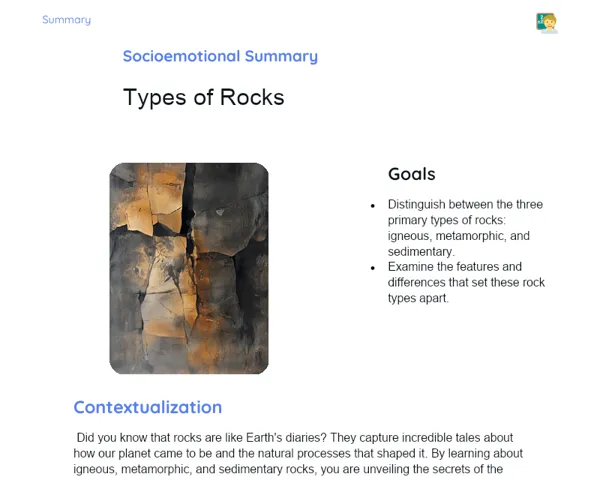Summary Tradisional | Human Body: System Organization
Contextualization
The human body functions like a well-oiled machine, consisting of various systems that work in harmony to sustain life. Each system is comprised of specific organs that perform crucial tasks necessary for our survival. For instance, the circulatory system ensures the delivery of nutrients and oxygen to every cell, while the digestive system is responsible for breaking down food and absorbing its nutrients.
Among these systems, the urinary system is vital for eliminating waste and regulating the balance of water and salts in the body. It includes the kidneys, ureters, bladder, and urethra, with its primary role being the filtration of blood to expel unwanted substances and create urine. Additionally, the urinary system contributes to maintaining homeostasis—the internal equilibrium essential for the optimal functioning of every cell in our body.
To Remember!
Urinary System
The urinary system is crucial for waste elimination and for keeping the body's water and salt balance in check. This system comprises four major organs: the kidneys, ureters, bladder, and urethra. Each of these organs has a significant role in maintaining the body's homeostasis.
Situated in the lower back, the kidneys are bean-shaped organs that filter blood to remove metabolic waste and excess substances like water and salts. This results in the creation of urine, which is the liquid waste expelled by the body.
The ureters are tubes that carry urine from the kidneys to the bladder. The bladder acts as a storage tank for urine until it is ready to be released. When the bladder fills, it sends signals to the brain indicating the need to relieve oneself. Finally, the urethra is the pathway through which urine exits the body.
-
The urinary system helps eliminate waste and maintain water and salt balance.
-
The kidneys filter the blood to generate urine.
-
Ureters transport urine from the kidneys to the bladder.
-
The bladder stores urine until it's time to excrete it.
-
The urethra facilitates the excretion of urine.
Kidneys
The kidneys are indispensable organs for blood filtration and urine production. Found in the lower back, they resemble beans and have multiple crucial functions that support the body's homeostasis.
Each kidney contains a vast number of functional units known as nephrons, which perform the filtration work. Here, blood is filtered to extract metabolic waste and excess substances like water and salts. The end product of this filtration is urine, which consists of waste expelled from the body.
Besides filtration, the kidneys also play significant roles in regulating blood pressure, producing hormones that promote the formation of red blood cells, and maintaining the body's acid-base balance.
-
The kidneys filter blood and produce urine.
-
Each kidney consists of millions of nephrons.
-
The kidneys regulate blood pressure and secrete hormones.
Nephrons
Nephrons are the operational units of the kidneys, integral to blood filtration and urine production. Each kidney houses around a million nephrons, each made up of a glomerulus and a system of renal tubules.
The filtration process commences at the glomerulus, a cluster of tiny blood vessels that filter out waste and excess substances. The resulting filtrate then moves through the renal tubules, where necessary water and salts are reabsorbed, and unneeded substances are secreted. The end product is urine, transported to the ureters before reaching the bladder.
Nephrons are vital for maintaining fluid and electrolyte stability in the body, along with regulating blood pH. Any disruptions in nephron function could lead to severe health concerns, like kidney failure.
-
Nephrons are the functional units of the kidneys.
-
Each kidney contains roughly a million nephrons.
-
Nephrons filter blood and create urine.
-
Nephrons help maintain fluid and electrolyte balance and regulate blood pH.
Fluid Balance Maintenance
Fluid balance is a fundamental aspect of homeostasis in the body. The urinary system is key to this process, managing the volume and makeup of bodily fluids.
The kidneys filter the blood to eliminate excess water, salts, and other waste, contributing to urine formation. This process ensures the appropriate levels of electrolytes, such as sodium and potassium, in the bloodstream. Moreover, the kidneys can modify the amount of water that is either absorbed or expelled, tailoring it according to the body's requirements and thereby aiding in fluid balance.
Proper fluid regulation is crucial for the effective functioning of cells and body systems. Any disruption can lead to critical health problems like dehydration or swelling. Therefore, adopting healthy practices like drinking adequate water is essential for sustaining a well-functioning urinary system.
-
The urinary system manages the volume and composition of body fluids.
-
The kidneys eliminate excess water, salts, and waste from the bloodstream.
-
Fluid regulation is vital for homeostasis.
-
Healthy practices support a well-functioning urinary system.
Key Terms
-
Urinary System: A collection of organs tasked with waste removal and the balance of water and salts.
-
Kidneys: Organs that filter blood and produce urine.
-
Nephrons: The functional units of the kidneys that handle blood filtration.
-
Homeostasis: The body's internal equilibrium crucial for proper cell activity.
-
Ureters: Tubes that carry urine from the kidneys to the bladder.
-
Bladder: An organ that temporarily stores urine before excretion.
-
Urethra: The duct through which urine is expelled from the body.
Important Conclusions
In our lesson focusing on the human body's organization, we delved into the intricacies of the body as a system of interrelated parts. We highlighted the urinary system, examining its primary components—the kidneys, ureters, bladder, and urethra—and their key roles in waste disposal and fluid balance.
Understanding nephron functionality in blood filtration and urine formation was pivotal in grasping the kidneys' importance for homeostasis. The urinary system's role in fluid regulation and waste elimination reinforces the necessity of cultivating healthy habits for its effective operation. Common issues like urinary tract infections and kidney stones can often be avoided with sufficient hydration and a balanced diet. Thus, awareness of the urinary system enriches our understanding of the human body and fosters the encouragement of a healthy lifestyle.
We rounded off the session by emphasizing the relevance of this topic in students' everyday lives, motivating them to pursue further exploration of the human body. A strong grasp of human body systems is vital not only for health maintenance and disease prevention, but also for fostering a deeper appreciation for self-care.
Study Tips
-
Go through the materials shared during the lesson, like slides and notes, and focus on key points discussed.
-
Look for educational videos and documentaries that explain how the urinary system functions and the significance of homeostasis.
-
Participate in practical exercises or activities, such as quizzes or making diagrams, to visualize the organization of body systems.



